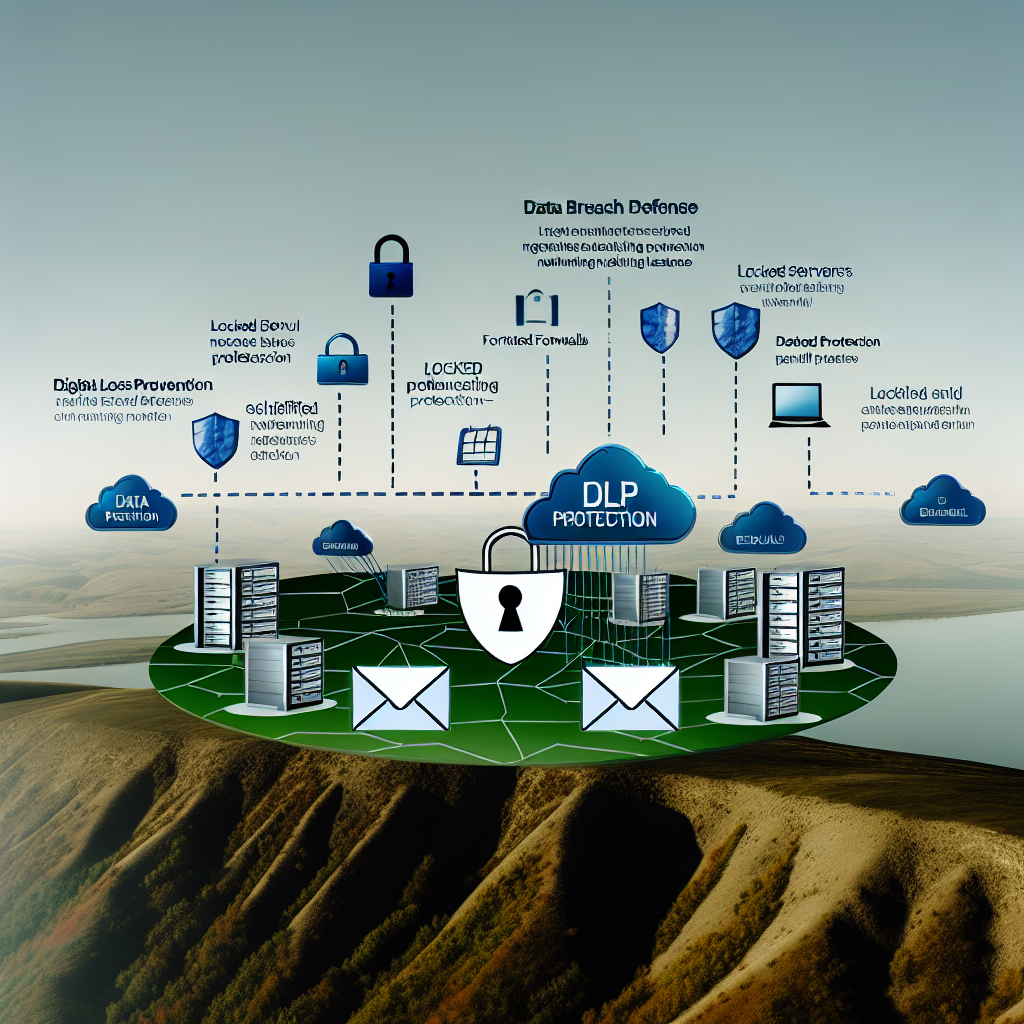Enhancing Clinical Support Through Advanced Tech Integration in Healthcare Systems
In the rapidly evolving landscape of healthcare, the integration of advanced technology into clinical support systems has become a pivotal strategy for enhancing patient care and operational efficiency. As healthcare systems strive to meet the increasing demands of patient populations, the adoption of modern IT strategies is proving indispensable. This integration not only streamlines processes but also significantly improves the quality of care provided to patients.
One of the primary ways advanced technology is enhancing clinical support is through the implementation of electronic health records (EHRs). EHRs have revolutionized the way patient information is stored, accessed, and utilized. By digitizing patient records, healthcare providers can easily access comprehensive patient histories, which facilitates more accurate diagnoses and personalized treatment plans. Moreover, EHRs enable seamless communication between different departments and healthcare facilities, ensuring that patient information is consistently up-to-date and accessible to all relevant parties.
In addition to EHRs, telemedicine has emerged as a critical component of modern healthcare IT strategies. Telemedicine platforms allow healthcare providers to offer remote consultations, which is particularly beneficial for patients in rural or underserved areas. This technology not only expands access to healthcare services but also reduces the burden on physical healthcare facilities. Furthermore, telemedicine can lead to more timely interventions, as patients can receive medical advice and treatment without the need for in-person visits, thus enhancing overall patient outcomes.
Another significant advancement in healthcare IT is the use of artificial intelligence (AI) and machine learning. These technologies are being leveraged to analyze vast amounts of data, leading to more informed decision-making processes. AI algorithms can identify patterns and predict potential health issues before they become critical, allowing for proactive interventions. For instance, AI can assist in early detection of diseases such as cancer by analyzing medical imaging with greater accuracy than traditional methods. This not only improves patient prognosis but also optimizes resource allocation within healthcare systems.
Moreover, the integration of wearable technology into healthcare systems is providing real-time data that can be used to monitor patient health continuously. Devices such as smartwatches and fitness trackers collect data on vital signs, physical activity, and sleep patterns. This information can be transmitted to healthcare providers, enabling them to monitor patients remotely and intervene when necessary. Such continuous monitoring is particularly beneficial for managing chronic conditions, as it allows for timely adjustments to treatment plans based on real-time data.
Cybersecurity is another critical aspect of integrating advanced technology into healthcare systems. As more patient data is digitized and shared across platforms, ensuring the security and privacy of this information is paramount. Healthcare organizations must implement robust cybersecurity measures to protect sensitive data from breaches and unauthorized access. This includes employing encryption, multi-factor authentication, and regular security audits to safeguard patient information.
In conclusion, the integration of advanced technology into healthcare systems is transforming clinical support, leading to improved patient care and operational efficiency. By adopting modern IT strategies such as EHRs, telemedicine, AI, wearable technology, and robust cybersecurity measures, healthcare providers can enhance their services and meet the evolving needs of their patients. As technology continues to advance, its role in healthcare will undoubtedly expand, offering new opportunities to further improve the quality and accessibility of care.
EHR Innovations: Modern IT Strategies for Improved Healthcare Delivery
In the rapidly evolving landscape of healthcare, the integration of modern IT strategies has become indispensable for enhancing the quality and efficiency of healthcare delivery. Among the most significant advancements in this domain is the development and implementation of Electronic Health Records (EHRs). These digital systems have revolutionized the way patient information is stored, accessed, and utilized, offering a myriad of benefits that extend beyond mere data management. As healthcare systems continue to embrace these innovations, it is crucial to explore the strategies that underpin their successful deployment and the impact they have on healthcare delivery.
To begin with, the adoption of EHRs has facilitated a more streamlined and coordinated approach to patient care. By providing healthcare professionals with immediate access to comprehensive patient histories, EHRs enable more informed decision-making and reduce the likelihood of medical errors. This is particularly important in emergency situations where time is of the essence, and having accurate information readily available can significantly influence patient outcomes. Moreover, EHRs support the integration of various healthcare services, allowing for seamless communication between different departments and specialists. This interconnectedness ensures that patient care is not only more efficient but also more holistic, addressing the multifaceted needs of individuals.
In addition to improving patient care, EHRs have also contributed to enhanced operational efficiency within healthcare institutions. By digitizing records, healthcare providers can reduce the administrative burden associated with paper-based systems, thereby freeing up valuable resources that can be redirected towards patient care. Furthermore, the automation of routine tasks, such as appointment scheduling and billing, minimizes the potential for human error and accelerates the overall workflow. This increased efficiency is particularly beneficial in large healthcare facilities where managing vast amounts of data can be challenging.
Another critical aspect of modern IT strategies in healthcare is the emphasis on data security and patient privacy. With the digitization of health records comes the responsibility to protect sensitive information from unauthorized access and breaches. Healthcare systems are increasingly investing in robust cybersecurity measures to safeguard patient data, employing advanced encryption techniques and multi-factor authentication protocols. These efforts not only ensure compliance with regulatory standards but also foster trust between patients and healthcare providers, which is essential for the effective delivery of care.
Moreover, the integration of EHRs with other emerging technologies, such as artificial intelligence (AI) and machine learning, is paving the way for more personalized and predictive healthcare solutions. By analyzing vast datasets, AI algorithms can identify patterns and trends that may not be immediately apparent to human clinicians. This capability allows for the early detection of potential health issues and the development of tailored treatment plans that cater to the unique needs of each patient. As a result, healthcare delivery becomes more proactive rather than reactive, ultimately improving patient outcomes and reducing the burden on healthcare systems.
In conclusion, the innovations in EHRs and the implementation of modern IT strategies are transforming the healthcare landscape, offering significant improvements in both patient care and operational efficiency. As these technologies continue to evolve, it is imperative for healthcare systems to remain adaptable and forward-thinking, embracing new tools and methodologies that enhance their ability to deliver high-quality care. By doing so, they can ensure that they are not only meeting the current demands of the healthcare industry but also preparing for the challenges and opportunities that lie ahead.
Ensuring HIPAA Compliance in the Era of Digital Healthcare Systems
In the rapidly evolving landscape of digital healthcare systems, ensuring compliance with the Health Insurance Portability and Accountability Act (HIPAA) has become a paramount concern for healthcare providers and IT professionals alike. As healthcare organizations increasingly adopt modern IT strategies to enhance patient care and streamline operations, they must also navigate the complex regulatory environment that governs patient data privacy and security. The integration of advanced technologies such as electronic health records (EHRs), telemedicine, and cloud computing has undoubtedly transformed the healthcare industry, yet it has also introduced new challenges in maintaining HIPAA compliance.
To begin with, the digitization of patient records has necessitated a robust approach to data protection. Healthcare organizations must implement comprehensive security measures to safeguard sensitive information from unauthorized access and breaches. This involves deploying encryption technologies, access controls, and regular security audits to ensure that patient data remains confidential and secure. Moreover, as cyber threats continue to evolve, healthcare IT systems must be equipped with advanced threat detection and response capabilities to mitigate potential risks.
In addition to technical safeguards, administrative measures play a crucial role in ensuring HIPAA compliance. Healthcare organizations must establish clear policies and procedures for handling patient information, including guidelines for data access, sharing, and storage. Training programs for staff are essential to ensure that all employees understand their responsibilities in protecting patient privacy and are aware of the latest compliance requirements. By fostering a culture of security awareness, healthcare providers can significantly reduce the risk of data breaches and non-compliance.
Furthermore, the rise of telemedicine has introduced new dimensions to HIPAA compliance. As virtual consultations become more prevalent, healthcare providers must ensure that the platforms they use are secure and compliant with HIPAA regulations. This includes verifying that video conferencing tools and communication channels are encrypted and that patient consent is obtained before any virtual interaction. Additionally, healthcare organizations must be vigilant in monitoring and managing third-party vendors who may have access to patient data, ensuring that they adhere to the same stringent compliance standards.
Cloud computing, another cornerstone of modern healthcare IT strategies, offers numerous benefits such as scalability, cost-effectiveness, and enhanced collaboration. However, it also presents unique challenges in maintaining HIPAA compliance. When utilizing cloud services, healthcare organizations must conduct thorough due diligence to select reputable providers who offer robust security measures and are willing to sign Business Associate Agreements (BAAs). These agreements are critical in delineating the responsibilities of both parties in protecting patient data and ensuring compliance with HIPAA regulations.
Moreover, as healthcare systems become more interconnected, the importance of interoperability cannot be overstated. Seamless data exchange between different healthcare entities is essential for providing comprehensive patient care, yet it must be achieved without compromising data security. Healthcare organizations must adopt standardized protocols and frameworks that facilitate secure data sharing while maintaining compliance with HIPAA requirements.
In conclusion, ensuring HIPAA compliance in the era of digital healthcare systems requires a multifaceted approach that encompasses technical, administrative, and organizational strategies. By leveraging modern IT solutions while adhering to stringent regulatory standards, healthcare providers can protect patient privacy, enhance data security, and ultimately improve the quality of care. As the healthcare industry continues to embrace digital transformation, maintaining a steadfast commitment to HIPAA compliance will be crucial in navigating the challenges and opportunities that lie ahead.
Leveraging Medical Data for Strategic Health IT Trends and Insights
In the rapidly evolving landscape of healthcare, the integration of information technology has become a pivotal factor in enhancing patient care and operational efficiency. As healthcare systems increasingly rely on digital solutions, the strategic use of medical data emerges as a cornerstone for driving innovation and improving outcomes. The ability to leverage medical data effectively not only facilitates informed decision-making but also propels the development of modern IT strategies that align with the dynamic needs of healthcare providers and patients alike.
One of the primary ways in which medical data is being utilized is through the implementation of electronic health records (EHRs). These digital records consolidate patient information, making it accessible to healthcare professionals across various departments and locations. This accessibility ensures that patient care is both comprehensive and coordinated, reducing the likelihood of errors and redundancies. Moreover, EHRs serve as a rich source of data that can be analyzed to identify trends, predict outcomes, and tailor treatments to individual patients, thereby enhancing the overall quality of care.
In addition to EHRs, the advent of big data analytics has revolutionized the way healthcare systems approach patient care and operational management. By harnessing vast amounts of data generated from diverse sources such as wearable devices, medical imaging, and genomic sequencing, healthcare providers can gain valuable insights into patient populations and disease patterns. This data-driven approach enables the identification of at-risk individuals, the optimization of resource allocation, and the development of personalized treatment plans. Consequently, big data analytics not only improves patient outcomes but also contributes to cost savings and increased efficiency within healthcare systems.
Furthermore, the integration of artificial intelligence (AI) into healthcare IT strategies is transforming the way medical data is utilized. AI algorithms can process and analyze complex datasets at a speed and accuracy that surpass human capabilities. This technology is being employed in various applications, from diagnostic imaging to predictive analytics, offering healthcare professionals powerful tools to enhance diagnostic accuracy and treatment efficacy. For instance, AI-driven diagnostic tools can assist radiologists in identifying anomalies in medical images, while predictive models can forecast patient deterioration, allowing for timely interventions.
As healthcare systems continue to embrace digital transformation, the importance of data interoperability cannot be overstated. Interoperability ensures that disparate IT systems and devices can communicate and exchange data seamlessly, thereby facilitating a holistic view of patient health. This capability is crucial for enabling coordinated care, especially in complex cases involving multiple specialists and healthcare facilities. By prioritizing interoperability, healthcare organizations can break down data silos and foster a more integrated and efficient healthcare ecosystem.
However, the strategic use of medical data also necessitates robust data governance and security measures. With the increasing digitization of health information, safeguarding patient privacy and ensuring data integrity are paramount. Healthcare organizations must implement stringent security protocols and comply with regulatory standards to protect sensitive information from breaches and unauthorized access. By doing so, they can build trust with patients and stakeholders, which is essential for the successful adoption of health IT initiatives.
In conclusion, the strategic leveraging of medical data is instrumental in shaping modern healthcare IT strategies. Through the use of EHRs, big data analytics, AI, and interoperability, healthcare systems can enhance patient care, improve operational efficiency, and drive innovation. As the healthcare industry continues to evolve, the ability to harness the power of medical data will remain a critical factor in achieving sustainable and patient-centered outcomes.
The Role of Tech Integration in Transforming Healthcare Systems
In recent years, the integration of technology into healthcare systems has emerged as a pivotal force in transforming the landscape of medical services. As healthcare organizations strive to enhance patient care, improve operational efficiency, and reduce costs, the role of technology has become increasingly significant. The seamless integration of modern IT strategies into healthcare systems is not merely an option but a necessity for achieving these goals. By leveraging advanced technologies, healthcare providers can streamline processes, enhance data management, and ultimately deliver superior patient outcomes.
One of the primary benefits of tech integration in healthcare is the enhancement of data management and accessibility. Electronic Health Records (EHRs) have revolutionized the way patient information is stored and accessed. By digitizing patient records, healthcare providers can ensure that critical information is readily available to authorized personnel, thereby reducing the risk of errors and improving the quality of care. Moreover, EHRs facilitate the sharing of information across different healthcare settings, enabling a more coordinated and comprehensive approach to patient care. This interoperability is crucial in ensuring that patients receive consistent and informed treatment, regardless of where they seek care.
In addition to improving data management, technology integration in healthcare systems also plays a crucial role in enhancing patient engagement. With the advent of telemedicine and mobile health applications, patients now have greater access to healthcare services from the comfort of their homes. These technologies empower patients to take an active role in managing their health, whether by scheduling appointments, accessing medical records, or receiving remote consultations. As a result, patients are more informed and engaged in their healthcare decisions, leading to better adherence to treatment plans and improved health outcomes.
Furthermore, the integration of technology in healthcare systems has significant implications for operational efficiency. Automation of routine tasks, such as appointment scheduling and billing, allows healthcare providers to allocate resources more effectively and focus on delivering quality care. Additionally, advanced analytics and artificial intelligence (AI) tools enable healthcare organizations to gain insights from vast amounts of data, facilitating more informed decision-making. By identifying patterns and trends, these tools can help predict patient needs, optimize resource allocation, and improve overall service delivery.
However, the integration of technology into healthcare systems is not without its challenges. Ensuring data security and patient privacy remains a top priority, as the digitization of health records increases the risk of cyber threats. Healthcare organizations must implement robust security measures to protect sensitive information and maintain patient trust. Additionally, the successful integration of technology requires significant investment in infrastructure and training. Healthcare providers must be equipped with the necessary skills and knowledge to effectively utilize new technologies and adapt to the rapidly evolving digital landscape.
In conclusion, the integration of technology into healthcare systems is a transformative force that holds the potential to revolutionize the delivery of medical services. By enhancing data management, improving patient engagement, and increasing operational efficiency, modern IT strategies are instrumental in achieving better patient outcomes and more efficient healthcare delivery. While challenges remain, the benefits of tech integration are undeniable, making it an essential component of any forward-thinking healthcare organization. As technology continues to evolve, healthcare systems must remain agile and adaptable, embracing innovation to meet the ever-changing needs of patients and providers alike.
Unlock the future of healthcare with cutting-edge IT strategies! Discover how modern technology is transforming healthcare systems in “Healthcare IT Insights: Healthcare systems and Modern IT Strategies (12).” Learn more now!











